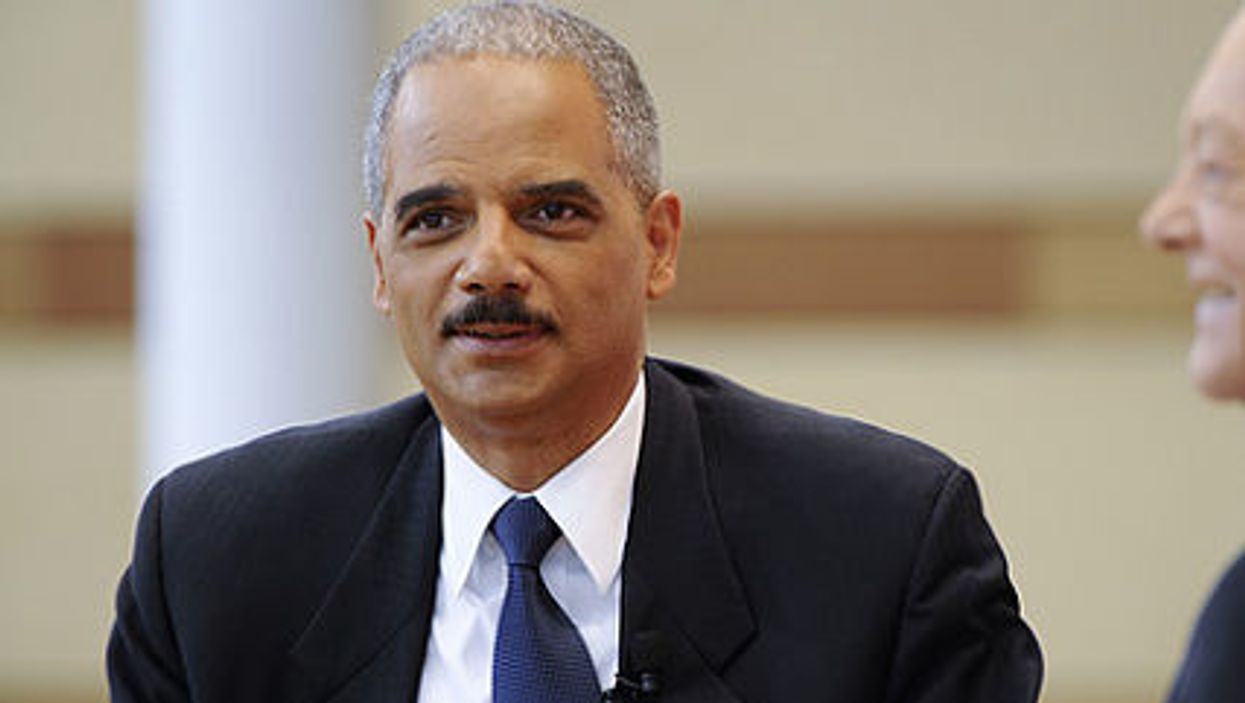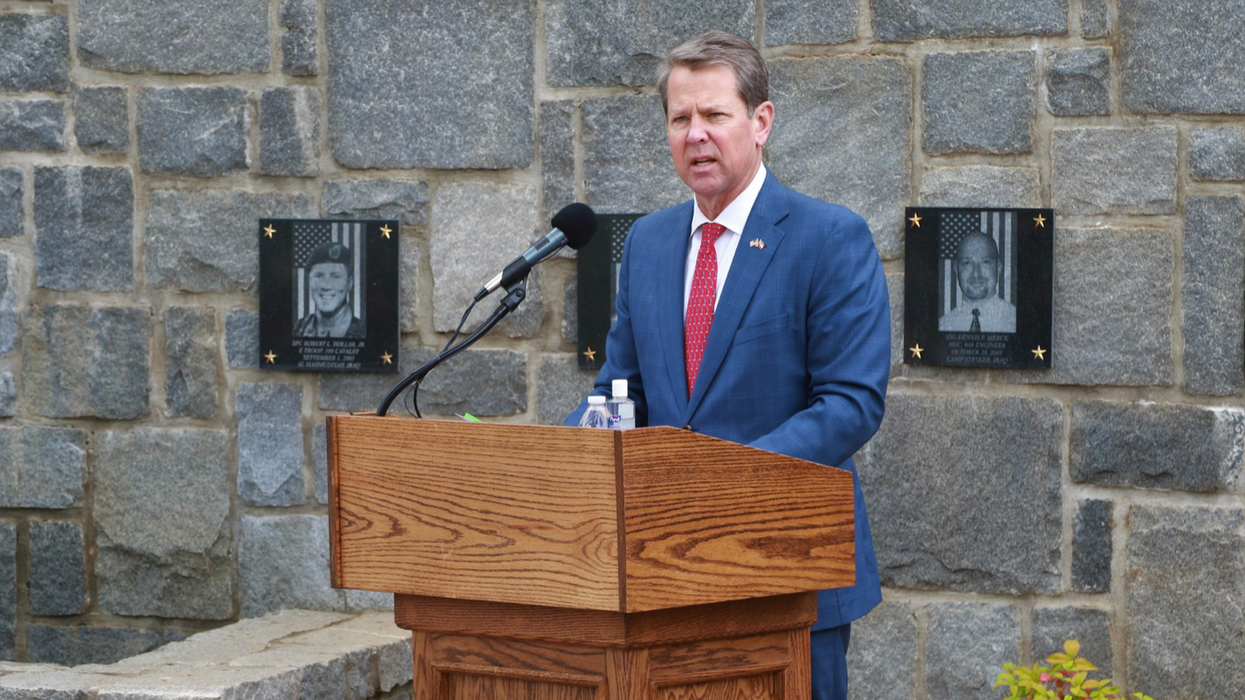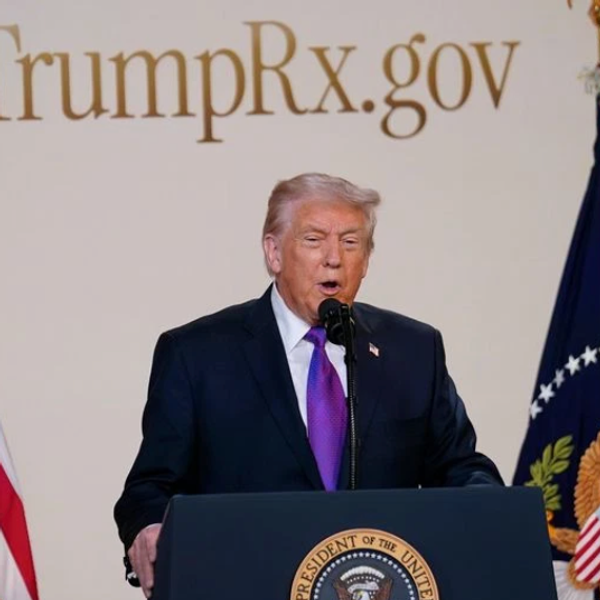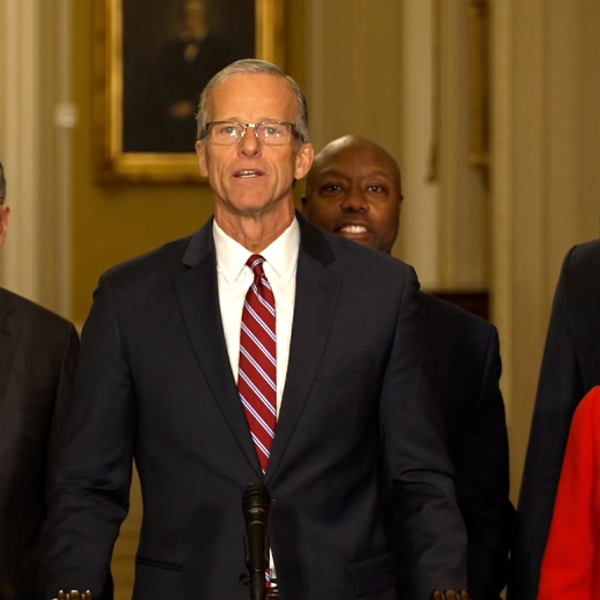While Advocates Seek Election Reform, Republicans Busily Restrict Voting
The failure of major federal voting rights legislation in the Senate has left civil rights advocates saying they are determined to keep fighting—including by suing in battleground states. But the little bipartisan consensus that exists on election reform would, at best, lead to much narrower legislation that is unlikely to address state-level GOP efforts now targeting Democratic blocs.
“This is the loss of a battle, but it is not necessarily the loss of a war, and this war will go on,” Eric Holder, the former U.S. attorney general and Democrat, told MSNBC, saying that he and the Democratic Party will be suing in states where state constitutions protect voting rights. “This fight for voting rights and voter protection and for our democracy will continue.”
“The stakes are too important to give up now,” said Damon Hewitt, president and executive director of the Lawyers’ Committee for Civil Rights Under Law, which for years has operated an Election Day hotline to help people vote. “Our country cannot claim to be free while allowing states to legislate away that freedom at will.”
In recent weeks, as it became clear that the Senate was not going to change its rules to allow the Freedom to Vote Act and the John Lewis Voting Rights Advancement Act to pass with a simple majority, there have been efforts by some lawmakers, election policy experts, and civil rights advocates to identify what election reforms could pass the Senate.
“There are several areas… where I think there could be bipartisan consensus,” said David Becker, executive director of the Center for Election Innovation and Research, in a briefing on January 20. “These areas are all around those guardrails of democracy. They are all about ensuring that however the voters speak that their voice is heard… and cannot be subverted by anyone in the post-election process.”
Becker cited updating the 1887 Electoral Count Act, which addressed the process where state-based slates of presidential electors are accepted by Congress. (In recent weeks, new evidence has surfaced showing that Donald Trump’s supporters tried to present Congress with forged certificates as part of an effort to disrupt ratifying the results on January 6, 2021.) Updating that law could also include clarifying which state officials have final authority in elections and setting out clear timetables for challenging election results in federal court after Election Day.
Five centrist Washington-based think tanks issued a report on January 20, Prioritizing Achievable Federal Election Reform, which suggested federal legislation could codify practices now used by nearly three-quarters of the states. Those include requiring voters to present ID, offering at least a week of early voting, allowing all voters to request a mailed-out ballot, and allowing states to start processing returned absentee ballots a week before Election Day.
But the report, which heavily drew on a task force of 29 state and local election officials from 20 states convened by Washington’s Bipartisan Policy Center, was notable in what it did not include, such as restoring the major enforcement section of the Voting Rights Act of 1965, which was removed by the U.S. Supreme Court in 2013. It did not mention the Electoral Count Act nor growing threats to election officials from Trump supporters.
“This won’t satisfy all supporters of the Freedom to Vote Act, but this is a plausible & serious package of reforms to make elections more accessible and secure that could attract bipartisan support,” tweeted Charles Stewart III, a political scientist and director of the MIT Election Data and Science Lab. “A good starting point.”
The reason the centrist recommendations won’t satisfy civil rights advocates is that many of the most troubling developments since the 2020 election would likely remain.
Targeting Battleground States
Seasoned advocates in battleground states say that Republicans have been pursuing a bottom-up strategy of targeting key decision points in the voting process that, collectively, could end up suppressing more votes than the winning margins in recent highest-stakes contests.
They point to new laws and policies in Georgia, Florida, Wisconsin, and Texas, where the GOP has foreclosed early voting options, imposed new rationales to disqualify voters or cancel their ballots, and, in Georgia, has purged longtime Democratic county election officials. They also are concerned about new legislation that may be introduced in early 2022.
Georgia, whose 2020 elections were key to Donald Trump’s defeat and the return of the U.S. Senate’s Democratic majority, offers many examples. (The state received a 100 percent grade in the Prioritizing Achievable Federal Election Reform report, meaning it already complies with the suggested remedies.)
Beyond launching a state investigation of metro Atlanta’s Fulton County, which is seen as a precursor to a GOP-led takeover of its operations, pro-Trump Republicans’ partisan actions in Georgia also include a handful of smaller counties that have seen Democratic officials purged, polling place closures, and Sunday voting suspended, and more ballots disqualified during 2021’s municipal elections than in 2020’s presidential election.
“There’s a clear a pattern going on where they [pro-Trump Republicans] are burrowing into these counties,” said Ray McClendon, Atlanta NAACP political action chairman. “These [county] election boards are going to be hardened targets that you won’t be able to make heads or tails of how much they have rigged the system pro-Republican and anti-Democrat.”
“They’re going to tell you, ‘We’re just following the rules. There’s no requirement that we have Sunday voting. There’s no requirement that we have more than one polling place,’” said McClendon. “This is not a top-down strategy.”
News reports from local, regional, and national media confirm the overall pattern.
In rural Lincoln County, Georgia, county commissioners announced they would only stand up one polling place for 2022’s elections instead of seven. “We are not trying to suppress any votes; we’re trying to make it better,” Walker Norman, Lincoln County Commission chairman, told the local NBC TV affiliate. “If I thought it was suppressing anybody’s vote, I’ll be the first one with opposition to it.”
In Spalding County, south of Atlanta, several election commissioners in mid-2020—Black women and Democrats—were ousted under new authority given to local judges and county officials under SB 202, the GOP-led legislature’s response to the 2020 election. The new election board, led by Republicans, did not offer Sunday voting during 2021’s elections.
A Reuters investigative report found that Spalding’s Board of Elections (BOE) was among six county BOEs that had seen purges of Black Democrats under SB 202, which the federal Department of Justice has sought to overturn in a voting rights lawsuit filed in June 2021.
The six counties cited by Reuters—Lincoln, Troup, Morgan, Stephens, Pickens, and Spalding—supported Trump by large margins in 2020. But, collectively, the counties had more than 33,000 Biden votes, which was about three times Biden’s statewide victory margin over Trump. In contrast, in Fulton County, Biden beat Trump by more than 240,000 votes.
Similarly restrictive moves can be seen in Texas, said Andrea Miller, who heads the Center for Common Ground, which seeks to assist minority voters in Southern states.
“We’re currently dealing with the aftermath of the [2021] legislative changes in Texas,” she said, citing new rules over applying for a mailed-out ballot that have led to abnormally high rejection rates for the upcoming March 2022 primary elections.
“About 40 percent of the ballots are being rejected (which is a lot for Texas) and it is also taking nearly 30 days to get a ballot,” Miller said via email. “Seems Texas changed the length of your driver’s license number so if you have an old one, it doesn’t have nearly enough numbers and they ‘can’t find you in the system.’ The new law also requires that if you drop the ballot off, you must do so in person and you can only drop off your own ballot.”
Texas has also run out of voter registration forms, which the Texas secretary of state’s office has blamed on supply chain issues. (In his media briefing, Becker said that rejected absentee ballot applications were a failure by the state to educate the public, and the registration form shortage represented a failure to plan for implementing a new law.)
2022 State Legislation
Meanwhile, as 2022 begins, more legislation is looming. In Georgia, GOP legislators have introduced several bills to continue to foreclose voting options. One bill, sponsored by a state senator running for lieutenant governor, would prohibit the use of drop boxes to return mailed-out absentee ballots, which were a convenience during 2020’s COVID-19 outbreaks and alleviated polling place congestion on Election Day. In another battleground state, Wisconsin, a county judge ruled in mid-January that the ballot drop boxes were not properly authorized under state law in a lawsuit filed by a right-wing foundation. The state agency that approved their use in 2020 has been attacked by GOP lawmakers and is targeted in new legislation, Becker said.
Seen from the ground up, the purpose of the post-2020 legislation and related litigation is to allow newly empowered local Republicans to chip away at Democratic turnout, and, subsequently, to try to disqualify as many mailed-in ballots as possible, the NAACP’s McClendon said.
“They have become smart enough to know that they can’t justify just blocking people of color from voting,” McClendon said. “If they can just peel off a half a point from no Sunday voting, a quarter of a point from provisional ballots getting thrown out, another quarter of a point from people not properly filling out their ballot return envelope, they will get their numbers.”
This article was produced by Voting Booth, a project of the Independent Media Institute.
Steven Rosenfeld is the editor and chief correspondent of Voting Booth, a project of the Independent Media Institute. He has reported for National Public Radio, Marketplace, and Christian Science Monitor Radio, as well as a wide range of progressive publications including Salon, AlterNet, The American Prospect, and many others.












